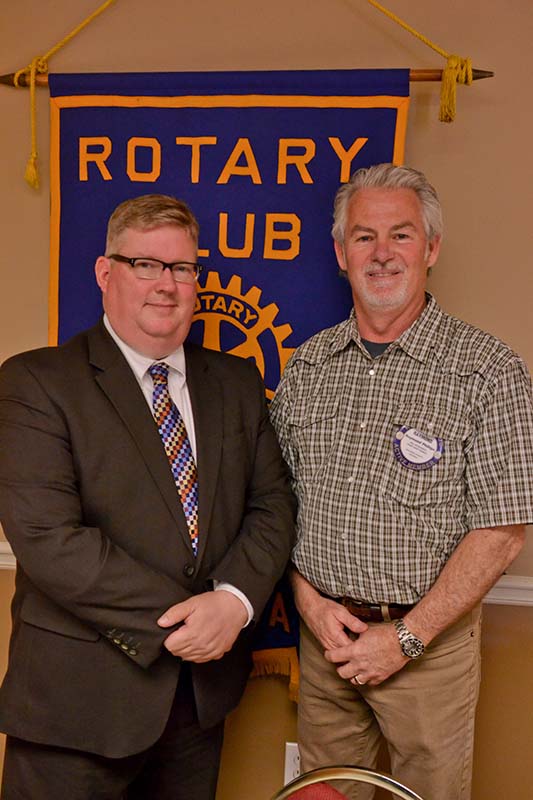 Superior Court Judge David Lyles spoke to the Rotary Club about the most recent accountability Court in Paulding County. It is a program designed to provide case disposition for people with a documented mental illness who have been charged with a crime. In many ways, Georgia is leading the nation in prison reform, and Paulding County is leaving the state through Accountability Court programs.
Superior Court Judge David Lyles spoke to the Rotary Club about the most recent accountability Court in Paulding County. It is a program designed to provide case disposition for people with a documented mental illness who have been charged with a crime. In many ways, Georgia is leading the nation in prison reform, and Paulding County is leaving the state through Accountability Court programs.
Accountability Court: Mental Health for Paulding County has been a goal of Judge David Lyles for many years. Last year he was able to realize this goal through his administration team. This team includes Senior Assistant District Attorney Mike Viscuse, Deputy Michele Palmer, Deputy Clint Barker, court coordinator Denise Snelling and Assistant Public Defender Sarah Powers Gilmartin. Candidates for this program must meet the requirements to be eligible to participate. Candidates must have a documented mental illness, be facing criminal charges with penalties of 18 months or more. Candidates must be competent enough to volunteer for the program. Meeting these criteria, they will be reviewed by the administration team. No sex offenders are allowed in the program.
As a nation, our prison populations are growing at an unsustainable rate, and are costing us dearly. As the cost of mental hospitals, operated by medical and psychiatric staff, has increased many states have closed their mental health facilities for lack of funds. Georgia is one of them and only has five institutions available. This lack of available care, unfortunately, falls to the police. Right now Cook County jail, Los Angeles County jail, and Rikers Island are the three largest providers of mental health medication in the United States. Obviously, there is something wrong with this picture. It is a very expensive burden to shift onto law enforcement. Not being trained to handle the mentally ill can lead to serious safety concerns for law enforcement and for the incarcerated.
The Accountability Courts are an effective solution to providing an alternative solution to those eligible people who are willing to take advantage of the opportunity to avoid incarceration. The savings are tremendous, up to $5000 a month per inmate could be saved by programs such as this.

